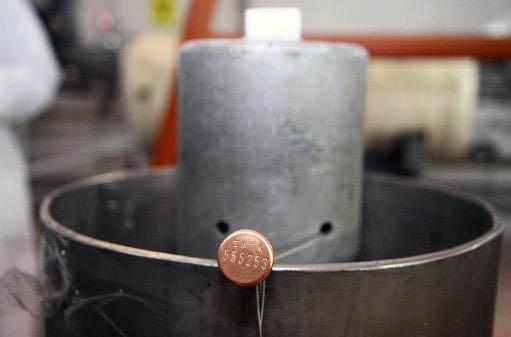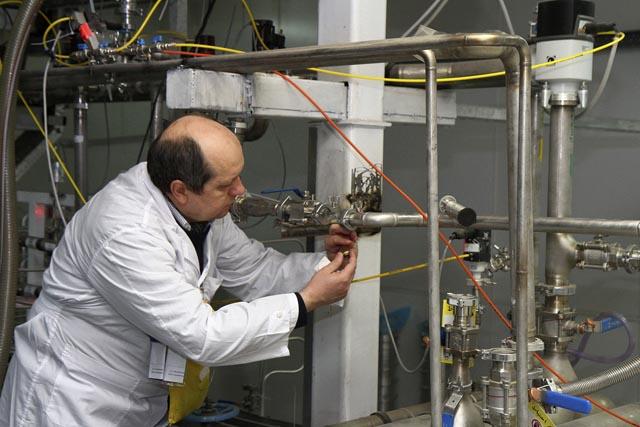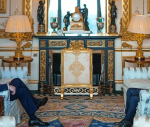You are here
Israel, Germany disagree over Iran nuclear talks
By AP - Feb 25,2014 - Last updated at Feb 25,2014

OCCUPIED JERUSALEM — The leaders of Israel and Germany acknowledged Tuesday they don’t see eye to eye on how to deal with Iran’s nuclear programme as negotiations between Tehran and world powers proceed.
Israeli Prime Minister Benjamin Netanyahu believes dismantling the programme is the best way to prevent Iran from developing an atomic bomb. The six world powers negotiating with Tehran, including Germany, have demanded significant cuts in its nuclear programme.
When asked at a press conference with visiting German Chancellor Angela Merkel if Germany, a key Israeli ally, and the other world powers would accept Netanyahu’s position, he replied “probably not”.
“They talked about the possibility of some enrichment and I think it’s a mistake,” Netanyahu said, seated next to Merkel. “If the world is serious about having Iran with civilian nuclear energy and not having Iran with military nuclear capability, then they don’t need any enrichment, and they don’t need any centrifuges.”
Germany, along with the United States, Russia, China, Britain and France, have been pursuing talks meant to roll back Iran’s nuclear programme. They ended their last session with a plan to meet again next month.
Merkel said the current situation was not ideal, but that it was preferred over allowing Iran to continue to charge forward with its programme unchecked.
“Clearly, there is a different way of looking at this, whether these negotiations should be conducted. We have decided to take this path, that enrichment is only taking place at a low level, but enrichment is taking place,” she said.
The talks are designed to build on a first-step deal that commits Iran to initial nuclear curbs in return for some easing of sanctions. The deal can be extended by mutual consent after six months.
Netanyahu has been an outspoken critic of the international negotiations, saying that Iran has been given significant relief while making few concessions of its own.
Israel views Iran’s nuclear programme as an existential threat, citing Iran’s repeated calls for Israel’s destruction, its long-range missile programme and its support for violent anti-Israel groups like the Hizbollah in Lebanon.
Iran says its programme is for peaceful purposes.
Merkel and most of her ministers are on a two-day trip to Israel. Germany is Israel’s closest European ally and holds an annual joint Cabinet session with its Israeli counterparts. The meetings highlight the strong bond between Israel and Germany seven decades after the Holocaust, when Nazi Germany killed six million Jews. Germany is also a key Israeli trade partner.
The countries are signing six agreements, including a deal whereby German embassies will offer consular assistance to Israelis in countries where Israel has no embassy of its own and an agreement allowing young Israelis to work in Germany.
Related Articles
Iran on Monday halted production of 20 per cent enriched uranium, marking the entry into force of an interim deal with world powers on its disputed nuclear programme.
Iranian nuclear talks were hanging in the balance six days before a deadline to get a historic deal, after intensive talks on Monday described by US Secretary of State John Kerry as “very tough”.
Iran, the United States and other world powers are all but certain to miss Monday's deadline for negotiations to resolve a 12-year stand-off over Tehran's atomic ambitions, forcing them to seek an extension, sources say.















